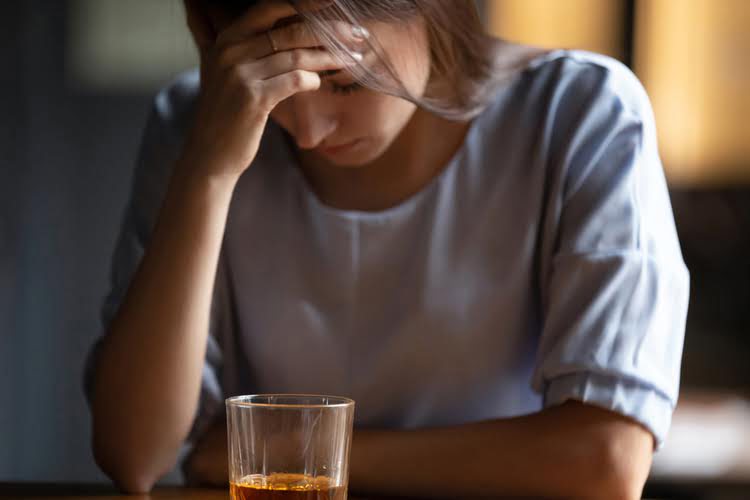Content
Conversely, what caused you to feel celebratory, excited, or overconfident? Triggers activate both negative and positive emotions – both can move individuals to unhealthy or risky behaviors. Use the Trigger Type categories below to build a list of your triggers. The Relapse Triggers Discovery Cards include over 100 specific triggers. Relationshipsdeserve a special mention as they are common relapse triggers and this is partly why it’s recommended not to pursue new romantic relationships in early recovery. Romantic and unhealthy sexual and non-sexual relationships can be a source of both euphoric and painful feelings, so to keep emotional stress at a manageable level they are best avoided if possible.
- Use the Trigger Type categories below to build a list of your triggers.
- It’s not uncommon for people who struggle with addictions to relapse at least once during recovery.
- Jogging, yoga, or any other form of exercise that you enjoy can help vent negative emotions or distract you from a trigger you may be facing.
- It’s important to remain positive and to consider seeking treatment – especially if this isn’t your first relapse.
- She noticed that there weren’t many aftercare programs dedicated to women’s sobriety or supporting them with the various co-occurring disorders that pop up once women are free from drugs and alcohol.
A final stage – termination – involves complete cessation of harmful addictive behaviors with no chance of relapse. Since very few people in recovery feel the addictive substance will never again tempt them, most remain indefinitely in the maintenance stage.
We Accept Most Insurances
During Bunny’s time off, he likes to destroy squeaky toys, play with his nerf dog-gun and sleep. There is a nostalgic aspect of drug use that can be particularly triggering. Being in an environment where there is drug use might be setting yourself up to fail. The sight, smell, or even sound of a drug being used could cause you to get flashbacks of your old habits. Try to remove yourself from any environments that will cause temptation.
- Tolerance is a state of adaptation in which exposure to a drug induces changes that result in a diminution of one or more of the drug’s effects over time.
- There is no simple exhaustive list of ways to avoid and manage triggers, but there are some common ways to reduce your risk of substance abuse relapse.
- We also provide various forms of holistic therapy that can provide fulfillment and effective coping methods.
- Keeping in regular contact with your counselor or sponsor can help you avoid this relapse trigger.
- At this point, individuals that are in recovery from substance abuse, are experiencing feelings, both positive and negative, that can be precursors to repeated substance abuse.
Whenever you are doubting yourself or feel like you have too much on your plate, therapy can help you cope with your negative emotions. Understanding substance use triggers is new for many people in recovery.
External Triggers
After transitioning out of rehab and heading back home or into a sober living program, every individual in recovery will encounter several triggers that can cause a relapse. The solution to overcoming this relapse trigger is to learn how to channel your positive feelings in a positive way, without the use of substance abuse. Gatehouse Treatment would like to help you overcome your relapse triggers. We propose you take a moment to learn about how addictive triggers can impact your life.

To overcome withdrawal symptoms, most people need some form of detoxification orwithdrawal managementservice. A long-term, severe relapse might require residential treatment, while people with prior experience in a treatment program may do well withoutpatient therapy. Whatever the course of treatment, it will involve the person identifying the reasons they relapse and learning what steps to take to prevent it in the future. For many people, drug and alcohol use began as a way to alleviate boredom or make certain activities feel more fun. Those in recovery often have a hard time finding new ways to have fun, and it may cause them to glamorize or ruminate on their past substance abuse.
Most Common Triggers Of Substance Abuse Relapse
The earlier people in recovery can identify and successfully respond to triggers, the greater their chances of prolonged abstinence. When you choose to get treatment at North Georgia Recovery Center, you can rest assured knowing that you will be treated by licensed therapists in our state-of-the-art facilities. Every one of our team members is certified to address and effectively treat the issues that come along with addiction.

These cues can bring about strong urges to use again, and if not handled correctly, these substance use triggers can lead the recovering addict types of relapse triggers to relapse. At Sana Lake, we can help you devise a relapse prevention plan so that you can be aware of your addiction triggers at all times.
Triggers of a Relapse
Whatever your addiction, our certified professionals at Sana Lake can help you achieve your recovery goals and kick drugs and alcohol for good. Arguably the most popular and well-known recovery group, Alcoholics Anonymous follows a 12-step approach that acknowledges a higher power and forces people to admit they are powerless over addiction. In AA, you are assigned a sponsor who will help you through your addiction recovery and be there for you when you encounter an addiction trigger. When you feel a craving coming on, don’t try to cover up the feeling; accept it, and let it pass. You’ll usually feel it for about 15 to 30 minutes before it fades. Seeing someone take a drag of a cigarette or smoke marijuana, as well as looking at people drinking at a bar can immediately bring back memories of drug use.

For example, powdered sugar can elicit an urge for drugs in someone who used cocaine. Although it was a short stay at Discovery, I feel I got a lot out of meetings, commitments, feed back, and advice from my family. But most of all, I felt great progress happened in group and one on one’s with counselors. I feel ready to deal with reality on my own and with support from family.
Treat mental health problems if they exist
If the recovering addict used to turn to drugs or alcohol to cope with these emotions, these emotions might become a relapse trigger during recovery. If these emotions become too much to handle, mental health treatment may be necessary. https://ecosoberhouse.com/ Emotion can be a trigger because drugs and alcohol usually provide temporary relief from negative feelings. People may seek out substances in times of sadness, anger, anxiety, guilt, or shame in order to deal with those emotions.
When you are bored or isolated, you are left with your thoughts and emotions, which you often do not want to hear. The more you become socially isolated, the easier it is to make sense of drug or alcohol use to yourself. Negative feelings are a part of everyday life; it’s essential not to let them get hold of you. Physical conditions and pain can also put you at risk for relapsing, as your body is stressed and may want to numb the pain by taking drugs. This pain also relates to drug withdrawal and the extreme discomfort that comes with it. For instance, an alcoholic for an alcoholic who stops drinking, the effects of alcohol create physical dependence, and their body literally depends on alcohol for it to function correctly.
